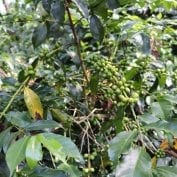
Improving Smallholder Farmer Livelihoods in Majang
TechnoServe is working to improve the livelihoods of smallholder coffee, honey, and spice farmers in Ethiopia's Majang Zone while enhancing forest conservation.

TechnoServe is working to improve the livelihoods of smallholder coffee, honey, and spice farmers in Ethiopia's Majang Zone while enhancing forest conservation.

To mark World Food Safety Day, Jonathan Thomas writes in Agrilinks about the work of TechnoServe's Alliance for Inclusive and Nutritious Food Processing in East and Southern Africa.
When Adugna Feye first decided to start growing coffee in 2010, he was simply looking for a way to feed his family. After participating in a TechnoServe coffee program, he increased his income 15-fold, allowing him to not only comfortably feed his family, but invest in his children’s education, his farm, and the future.

TechnoServe surveyed 106 food processors, representing seven countries in Africa, on the impact of COVID-19 on their operations. This survey presents our findings.
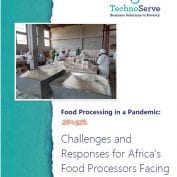
TechnoServe offers a guide on the challenges and responses facing food processors during the COVID-19 pandemic, based on a survey of 106 food processors from seven African countries.
In this series, we check back with TechnoServe program participants who were previously featured on our blog, documenting how their lives have changed and progressed.
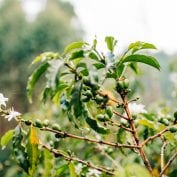
The REgrow Yirga project funded by USDA, JDE, and Peet's Coffee, in partnership with Kew, aims to enhance the sustainable competitiveness of the Ethiopian coffee sector through increased productivity, improved supply chain performance, strengthened market linkages, and a more facilitative enabling environment.
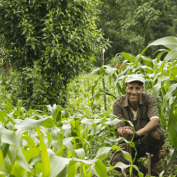
TechnoServe seeks to increase the production of teff, wheat, and maize for more than 200,000 farmers and strengthen the farmers access to output markets.
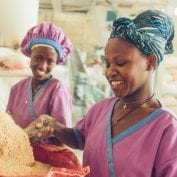
The inability to access safe, nutritious, and affordable food is a problem for many people across East and Southern Africa, leading to widespread malnutrition in children.

In this Business Fights Poverty article, TechnoServe Global Coffee Director Paul Stewart talks about the link between coffee quality and livelihoods.